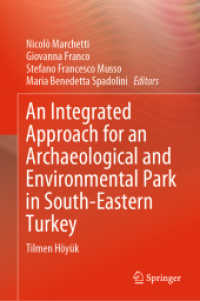- ホーム
- > 洋書
- > ドイツ書
- > Humanities, Arts & Music
- > History
Full Description
The book discusses how the most severe abuses of political power, traditionally termed from the ancient times as 'tyranny', were presented in 16th century political philosophy, propaganda, and literature in Italy, France, England, Scotland, German countries, and Poland-Lithuania. Using a unique interdisciplinary methodology, the book is both timeless and timely as it demonstrates various approaches of acknowledged Renaissance intellectuals to the problem of tyranny and how best to avoid or fight it. The author consciously avoids categories of the classic history of ideas or political thought and instead reveals broader intellectual and cultural connections in the perception of tyranny in the 16th century and its impact on modern debates on different dangers of political abuses of power.
Contents
Part One. Chapter II. The Machiavellian Moment and the Political Correctness of Erasmus
Part One. Chapter III. Thomas More and Niccolò Machiavelli: Tyrannical Readings of the Renaissance?
Part Two. Chapter I. The Reformation: from Obedience to the Right to Resistance - Tyranny as a Paradigm of Religious Alienation







